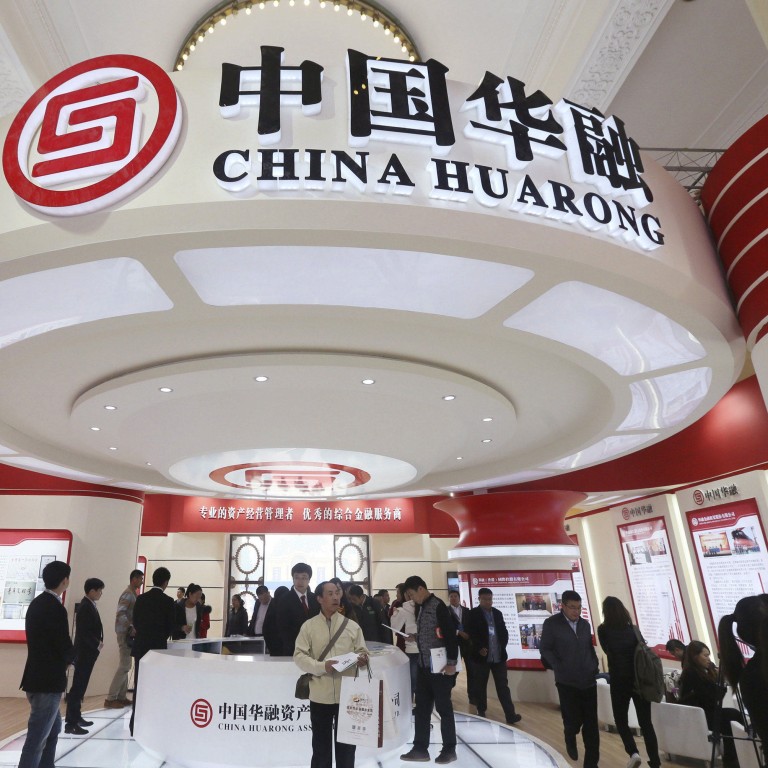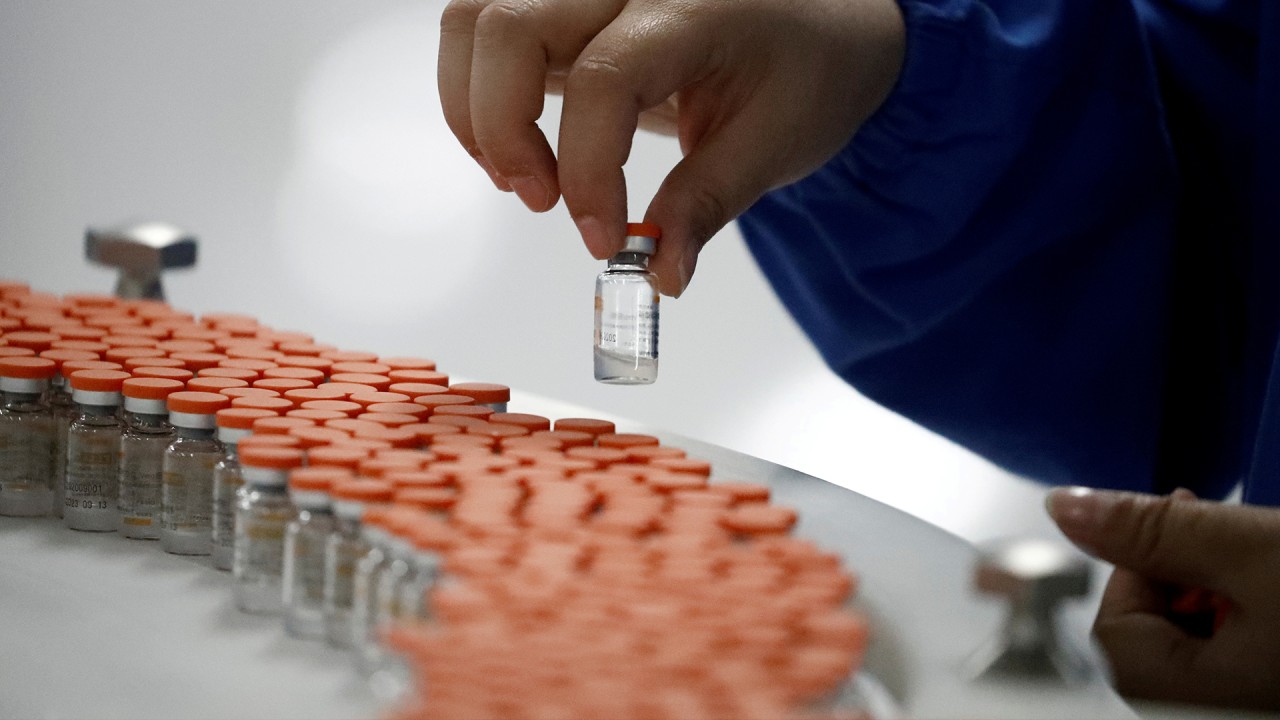
China Huarong uncertainty unnerves debt investors as credit ratings agencies review outlook for distressed-debt manager
- State-owned manager of distressed debt missed deadline to report annual results in March
- Results delay and potential downgrades are spooking bond holders
The uncertainty over the transaction has prompted three major credit rating agencies to put Huarong’s debt ratings on review for a potential downgrade. Meanwhile, Chinese media outlet Caixin reported this week that the company had delayed its results because of a financial restructuring, with Caixin’s managing editor raising the possibility of a bankruptcy in an opinion piece on Monday.
“It is unclear what the details of the relevant transaction are and when its 2020 annual results will be published,” David Yin, a senior analyst at Moody’s Investors Service, wrote in a report on Tuesday. “The potential impact on [Huarong’s] credit profile is uncertain, because there are a number of diverse scenarios that could affect its [baseline credit assessment] and potential government support.”
The company did not respond to a request for comment on Wednesday.
For bondholders, concerns over the state of the manager’s health – and whether they would be forced to take losses amid a potential restructuring – are growing.
Huarong’s most actively-traded bond – a US$1.5 billion perpetual bond issued four years ago – has lost about 30 cents on the dollar during the past two weeks and was quoted at 64 cents on Wednesday, according to prices compiled by Bloomberg.
A separate US$800 million bond maturing in 2025 dropped by 34 cents over the past two weeks to 77.5 cents on the dollar. Issued in 2015, the debt has seen its trading volume surge this month after its price began to sink below par.
Investors in these two bonds include BlackRock, Prudential, HSBC, Neuberger Berman, Invesco, and Chinese manager E Fund Management.
Set up two decades ago specifically to help Beijing manage state-owned banks’ bad debt, Huarong has today developed into a financial institution capable of offering financial leasing, banking and securities brokerage services. These services contributed about 36 per cent of Huarong Asset Management’s total income, according to its 2020 first half results.

Under its former chairman, Lai Xiaomin, the company expanded beyond its original mandate of managing soured debt into securities trading, trusts and other investment products.
Speculation is rife that those subsidiaries could be part of a potential restructuring.
Another potential outcome: China’s Ministry of Finance, Huarong’s biggest shareholder, is considering transferring its ownership stake to Central Huijin Investment, a sovereign wealth fund, Bloomberg News reported on Tuesday, citing a person familiar with the matter.
Concerns about Huarong’s outlook also follow a series of missed payments and defaults by state-owned entities, including a mine operator owned by the Henan provincial government, which have triggered concerns about credit risks.
While a restructuring or other transaction could enhance Huarong’s credit metrics, the downside risk to the company is higher, S&P Global Ratings analysts said in a note on Friday.
“This is because the company’s operating performance and asset quality were weaker than that of peers in recent years, largely due to legacy exposures associated with its ex-chairman,” S&P said.



